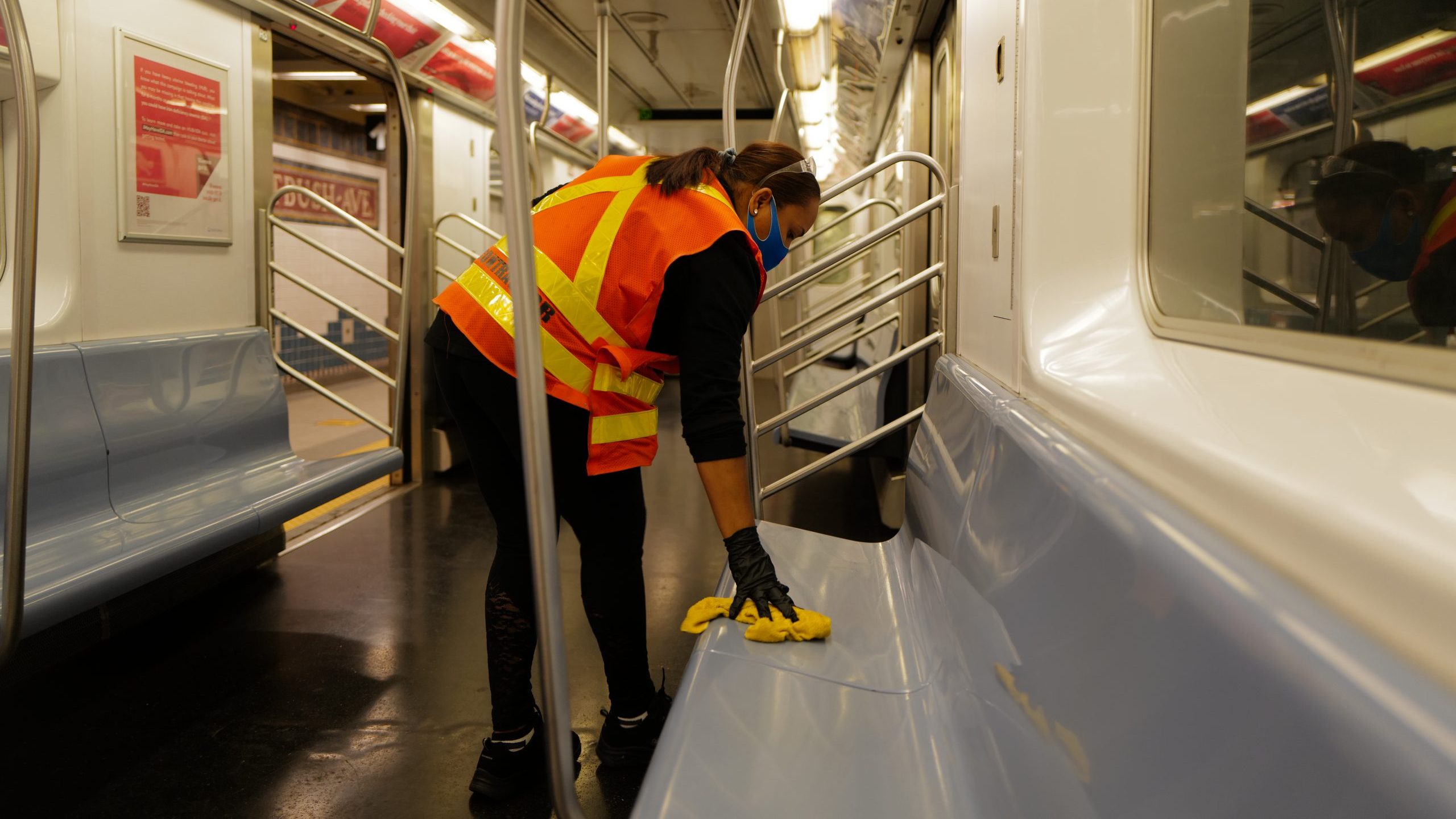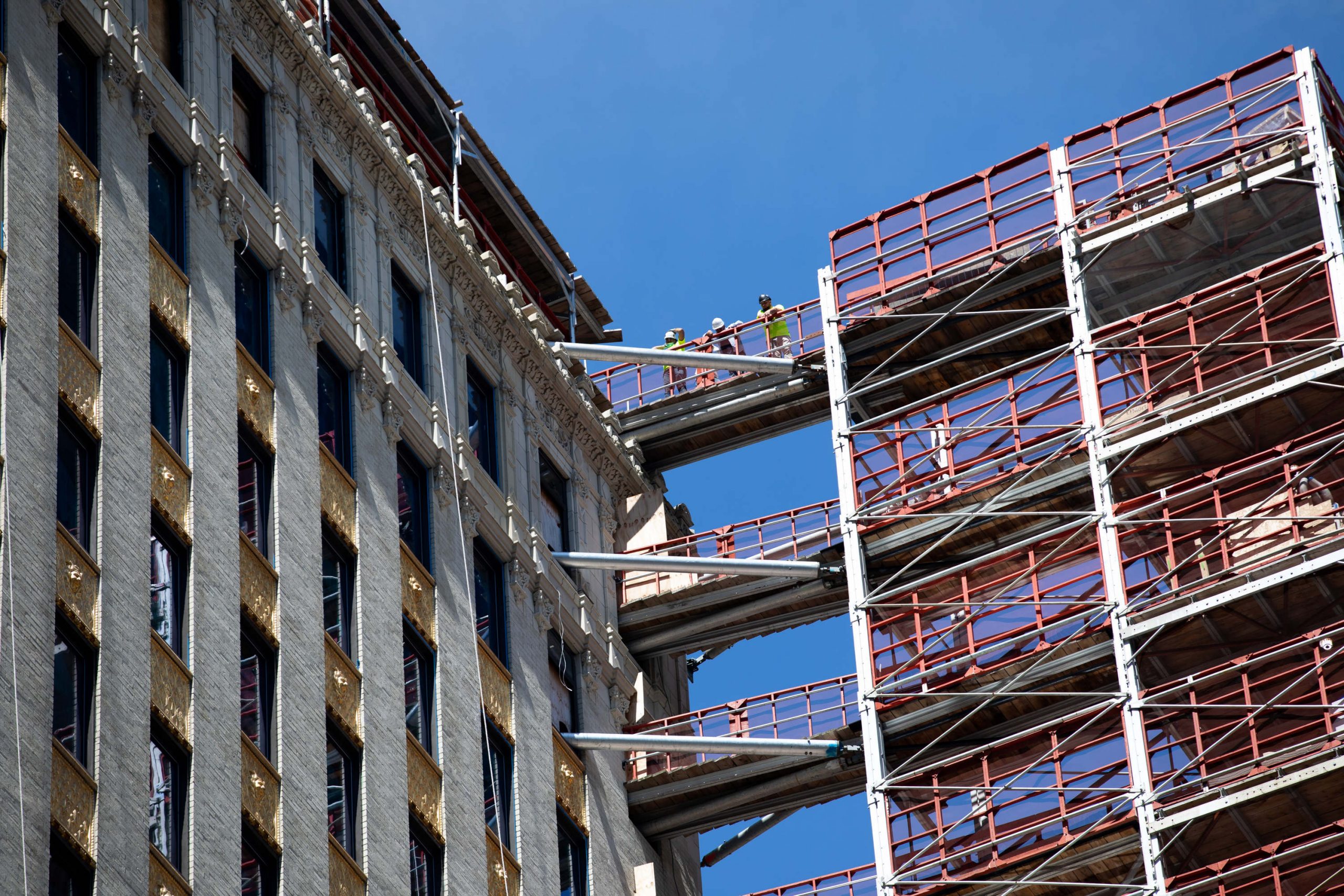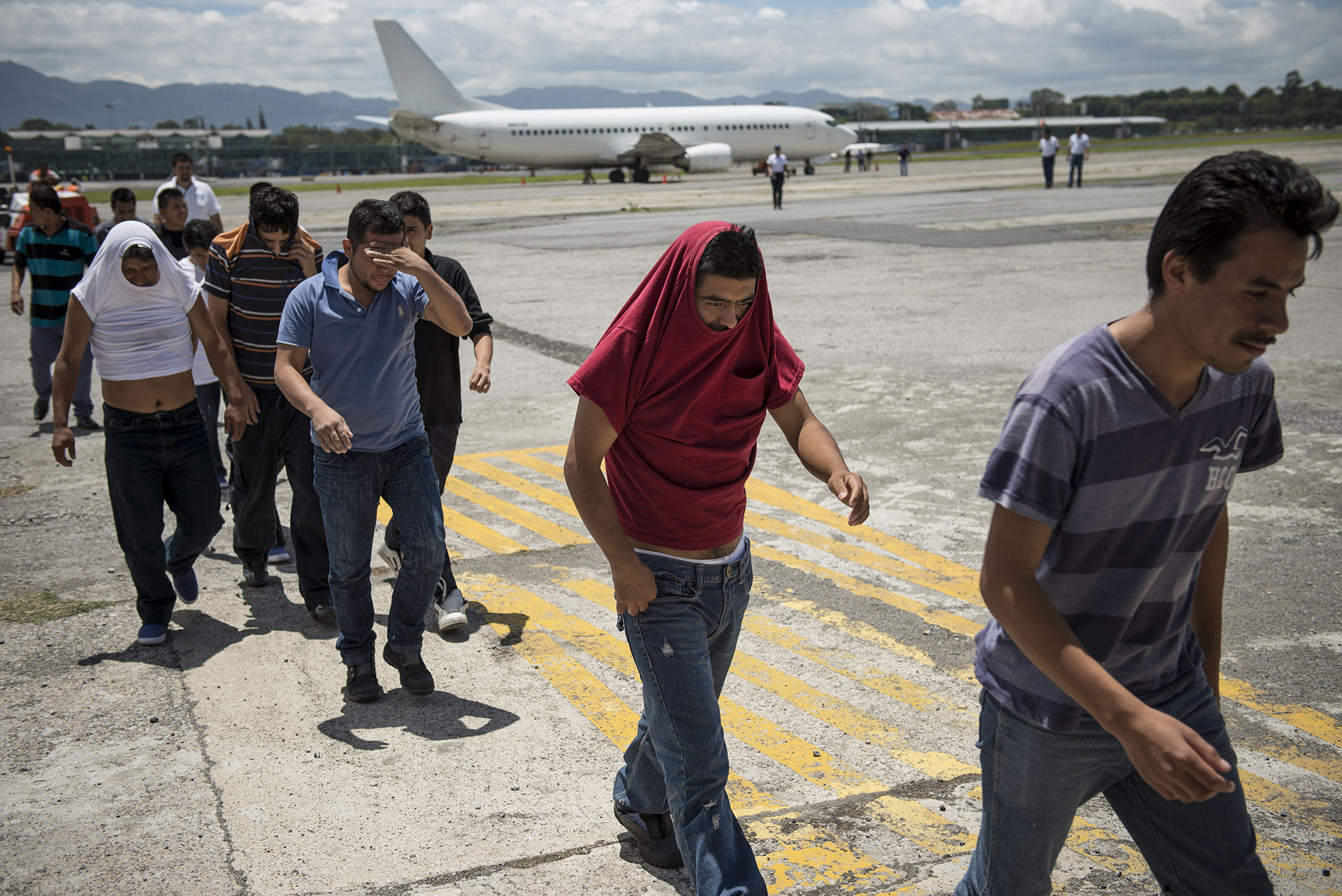When Jose Luis Dominguez describes his time working as a subway cleaner for NV Maintenance Services, it’s difficult for him not to get angry. One incident sticks out in his mind in particular; his supervisors found out he was driving his co-workers to work every morning. After warning him not to do that, the company arbitrarily ruled that co-workers were not allowed to arrive to work together.
“We weren’t allowed to talk to each other. We weren’t allowed to be friends. We weren’t allowed to use our phones,” he said. “At the end, things started to get even worse when we weren’t allowed to ride together to work.”
To make matters worse, workers were required to arrive a half hour early before their shift and would be sent home if they weren’t early, Dominguez and his co-worker Hemer Perez said. They were not paid for that time. They also claim that paychecks often had hours missing and overtime pay was not calculated. Workers were also not paid the prevailing wage of at least $28 an hour plus benefits, instead only being paid $20. Under New York State Labor Law, all contractors and subcontractors must pay their employees the prevailing rate of wage and benefits to all workers under a public works contract.
When Dominguez and Perez began speaking up about their conditions they were fired.
NV Maintenance Services is one of nearly two dozen cleaning companies that were contracted by the MTA to disinfect subway cars during the height of the pandemic. Documented reported at the time that the companies were paying their workers below the prevailing wage as well as forcing them to clean with few supplies and in dangerous circumstances. The workers were paid $20 per hour, despite cleaning MTA property, which prevailing wage law dictates should have a salary of $28 per hour. Then City Comptroller Scott Stringer sent two letters to the MTA, informing them that the cleaners should be paid $28 per hour for their work. The current comptroller Brad Lander also came to the same conclusion.
Also Read: Essential Subway Workers Allege Underpayment and Dangerous Conditions
“The previous Comptroller administration held that workers who sanitize the cars are entitled to the prevailing wage of subway station cleaners, and this administration agrees,” said a spokesperson from Lander’s office.
Still, the MTA gave explicit permission to cleaning companies to not pay their workers the prevailing wage, according to emails provided to Documented by Pelton Graham LLC, the law firm representing the workers.
“We cannot provide you with any further documentation that this contract requires prevailing wage to be paid,” Steven Picillo, Acting Chief Procurement Officer of Subways/Maintenance for the MTA told Victor Noce, the vice president of business development at NV Maintenance Services. “As the Acting Chief Procurement Officer for New York City Transit, I hereby am telling you that car cleaning at terminal stations does not require prevailing wage to be paid.”
In September of 2021, Dominguez and several of their fellow co-workers, many of whom were also fired or quit because they protested their conditions, filed a class action lawsuit against NV Maintenance Services in an effort to receive back wages. Perez, who joined the lawsuit while he was still employed with the company, was fired shortly after.
The lawsuit came several months after Documented reported on the alleged abuse and wage theft essential immigrant subway cleaners contracted by the MTA were forced to endure during the height of the pandemic. At the time, the workers Documented spoke to claimed that another company they worked for, LN Pro Services, failed to provide proper PPE and were also not paying prevailing wages. Leidy Almonte, owner of LN Pro Services asserted that they did not have to pay prevailing wages because the workers were cleaning the subway cars, not the station. The MTA told Documented that contractors were expected to follow applicable wage and employment laws and that any allegations to the contrary were unfounded. In a New York Daily News story from 2020, MTA spokesman Ken Lovett said that agency was “committed to fair pay for all those who work in any capacity inside the NYC Transit system.”
Since the early days of the pandemic, the MTA has relied on third-party contractors who in turn employ an army of immigrant workers, many of whom are undocumented and have little English proficiency, to keep New York City’s subway as clean as possible. In 2020, the MTA spent more than $192 million on subway cleaning and station cleaning contractors. The MTA has paid NV Maintenance Services $14,750,000 since 2020. Still, the agency refused to require the company to pay the extra $8 difference to meet the prevailing wage.
Dominguez, a single father of two, lost his job as a cook during the pandemic. Desperate to take any job he could get in June 2020, he began working for NV Maintenance Services as a subway cleaner. He worked the overnight shift at the elevated New Lots Avenue station, the last stop for the 3 Train line in East New York, Brooklyn. For $20 an hour, Dominguez was tasked to clean filthy subway cars, often with no or very little safety equipment. Despite his protests, the company would force him to go on his hands and knees to scrub human excrement off the floors. His children attempted to persuade him to quit out of fear he might get sick, but with few other employment options, he felt he had little choice but to continue working for the company.
“It was a high-risk job, not many people wanted to do it,” he said. “Especially at that station, it’s not in the safest neighborhood. It’s the last stop in Brooklyn and you had a lot of homeless people. We have to clean feces, we have to clean blood stains, all kinds of stuff.”
Female workers also faced unique abuse. Alexandra Bautista, a 45-year-old immigrant from Colombia, began working for NV Maintenance Services in June 2020 so she could support her daughter back home in Colombia. Every day she worked Monday through Friday between 1 a.m. to 7 a.m. at the New Lots Avenue station.
“As a female, it was very dangerous to go out in the streets at that time,” she said. “Especially because I worked the night shift.”
On a nearly daily basis, she and her coworkers were forced to bear the brunt of the city’s homeless crisis as they had to navigate the various mentally unstable people who took shelter in the subways to be able to do their job properly, Bautista and her co-workers would reluctantly ask the homeless passengers to leave the train so they could clean. Many would refuse and hurl a barrage of insults at them. Not being properly trained to handle vulnerable and emotionally unstable passengers, Bautista grew fearful of interacting with them. The fear of violence always loomed heavy in the air. Some of her co-workers were even attacked. Yet, the fear she felt from her male supervisor was far greater, she said.
“I complained to the main manager that one of the supervisors would wait outside the door when I was using the bathroom,” Bautista said. “The manager told me that she would fix the situation but the situation only got worse because he continued to do the same thing.”
Bautista says that her supervisor fixated on her and would follow her from car to car. She became so overwhelmed with anxiety that she quit in June 2021.
Neither the MTA nor NV Maintenance Services responded to Documented’s request for comment.
For Dominguez, the situation came to a head when in March of 2021 Dominguez refused to sign a letter that affirmed that he had received an employee handbook and agreed to its terms. He said he and his co-workers never received an employee handbook. The letter was written in English and most of his coworkers were immigrants from Latin America and understood little to no English. When he protested, he was fired.
When asked why he decided to sue the company, Dominguez is direct.
“I want justice for many people,” he said. “The company as an entity left people without jobs, without income, not really caring if we have money for rent, money to feed our families. I would love for those families, for those coworkers who like me got fired for no reason to get compensated.”
Working in the restaurant industry for as many years as he lived in the U.S, Dominguez is no stranger to workplace exploitation. As he gets older he has lost patience for exploitation of any kind.
“I have been in this county for too long and when I see injustice it just irritates me,” he said. “I don’t tolerate it.”
Also Read: Restaurant Workers Struggle to Recover Wages Stolen During the Pandemic














